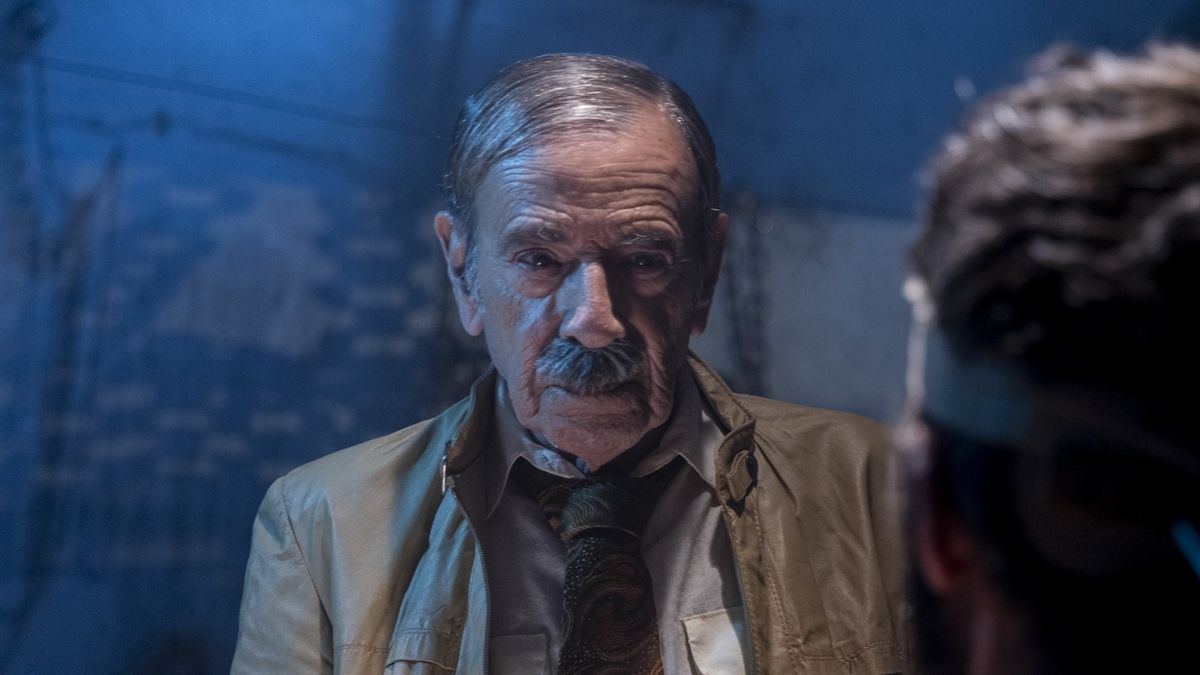Ma: I do not see it so, the work is coral (Payuca, Paula Mbarak, Diego Gentile, Inda Lavalle, Mariana Genesio, Sofía Diéguez and others). For me the only leading is that of Payuca, an excellent actress with whom I made the muscari version of the “Julio César” of Shakespeare.
Q.: Where you made of Calpurnia, the woman of César. And in “1978” he makes the head of a team of torturers.
MA: Obviously, I lived that time. The torturers do not have the sensitivity of one, of course, but then they get home and are with the woman, with the children, they do not tell what they did at work, how they went at work. It is his trade, like the one who drops the guillotine.
Q.: The interesting thing is that his character has a certain sense of humor, and does not shout. A defect of many Argentine actors is that when they do military or police, they put a face of bad and start shouting unnecessarily.
MP: And, nice are not, those characters. They must always have the gift of command, the way of speaking with total security. But he who has power does not shout. He doesn’t need it. Look “The godfather.” Corleone, his son Michael, doesn’t shout. The only outdated one is Sonny, which is a little. I know the military, I made the colimba in Formosa, Infantry Regiment of Monte 29, year 1965. We had to make our way to machetes by thickets full of vipers, it was something interesting. One day they appointed 45 for a quick course of reserve officers. I left as a reserve housing. In 1982 a partner calls me: “Are we going to summon us now that we are at war?” “Us? Forget. “
Q. Just in 1982 you made a young, sarcastic mefistopheles, for “the hole in the wall”, with Alfredo Alcón.
MA: An misunderstood movie, unfortunately.
Q.: A translation of the “Faust” at that time, where dwarfs with flamethrowers appear doing disaster in the middle of the central street and did not understand it?
MA: It usually occurs. That was my film debut. To act, David J. Kohon, the director, gave me the greatest lesson he has learned: “Mario, confess, the camera reads your thought.” Thus you have to act in cinema. There are good actors for the theater that are not for cinema, and film actors who cannot show off in theater. Luckily, they call me both sides.
Q.: In cinema, almost always to be wrong.
MA: The bad ones are more interesting to do, and see. But it’s true, they usually call me to make dark characters. Good characters I made more in theater, like the orchestra man of “El Organito”, in love with a woman who does not correspond to her. That is good for fool.
Q.: Or the “Doña Shrout and Bambuco”.
Ma: Ah, I loved doing that work! María Elena Walsh, what a lady, and what talent she had. But it was the only children’s work I did.
Q.: Much later became the Malhumorado clown of the City of Children in “Today the world is fixed,” by Ariel Winograd.
MA: Wino calls me a lot, and the papers that assign me are always interesting. The first, “came to steal”, we did it in a Viñedo Chico, a cellar of two very pleasant sisters who exported all their production.
Q.: There his character says something defining about the people who eat pasta without even a glass of wine.
Ma: Notice, I have left the drink for 30 years.
Q.: Tell me how he put together his best known character, the judge of “the secret of his eyes.” Was it inspired by a particular magistrate?
MA: I have not seen many judges in my life, but I observed how they dress, and how even in a domestic talk make you feel they are superior. Once I argued with a lawyer, I ended up in a court, we were those of minor cases all piled up as in a football tribune. Suddenly he thundered a voice: “Standing!” And Mr. Judge entered. There, the word caste is. The judges are not empathic people, they do not feel the same as us, they look a mixture of coldness and superiority. Knowing that, in “The secret of his eyes” I entered the character in two steps. First, when you wear the pilcha, all of top quality.
Q.: In this case, the habit makes the monk.
Ma: Second, the text. You have to see how these two employees green! The film was released, then I had to cross almost daily through the square in front of courts, and every so often the lawyers stopped me, and the employees to congratulate me and tell me “The judges are like this!”
Q.: And that has not seen many in his life. Nor will you have seen many torturers.
MA: There is something interesting. The terror is a genre that does not attract me, that I had not done, but those boys, the Onetti brothers, called me once to make “the forgotten”, we filmed it in Epecuen, ghost city, and I liked to do it. So when they called me for “1978” I was gladly. They are young, talented people, who loves cinema even knowing that cinema is expensive and does not compensate. It is the love they have, for example, film students. I made many shorts with students, they are good. As they are good in their own theater students, here they are full of good actors, because they study, fill the schools, if there is no laburo it does not matter, they organize themselves. As there are also a number of good professionals in all orders. Other things fail: politicians and trade unionists. Well, that is good for me to study them.
Q.: I think you were in the Board of Directors of the Association of Actors.
Ma: Suddenly you find, just like the judges, the politicians, and some in any commission of the order that is, people who are there to chape, to take a sheet of something. Some chape badly, almost touch the cartoon. In actors there was one that asked me to have my own stamp. About what? Of third member.
Q.: You have worked with Campanella, Winogra, Aristarain, Fernando Ayala, Teo Kofman, Fischerman, Aggegi, Maci, Miguel Angel Roca, and that without exhausting the list.
MA: Also with Néstor Zapata, a historic from Rosario, in a film entirely made by actors and Rosario technicians (from there I am me, although he seems Buenos Aires), and with people from Mendoza who did something similar, and I have also worked in Paraguay, very good people, and Uruguay, the same, so much that at the time I had the fantasy of moving. And I also worked with some bad, and with rare people, such as Jorge Polaco.
Q.: In “it is always difficult to return home.”
MA: He finished reading the novel, was practically the perfect script of a good police film, when he calls me Polish to make the film version. I am delighted. And I find that that was very different from the novel. I was mechanical, in my workshop an assailant was going to take refuge by the police. And Polish put a sheep. “You have to caress the sheep, the sheep is your partner,” he said insistently, to make it clear that he was “my partner.” That was not in the book!
Q.: What did you do?
MA: And, one is an actor, he does what the director asks, and also one has to eat. It is not a movie that wants to see again.
Source: Ambito
I am an author and journalist who has worked in the entertainment industry for over a decade. I currently work as a news editor at a major news website, and my focus is on covering the latest trends in entertainment. I also write occasional pieces for other outlets, and have authored two books about the entertainment industry.




